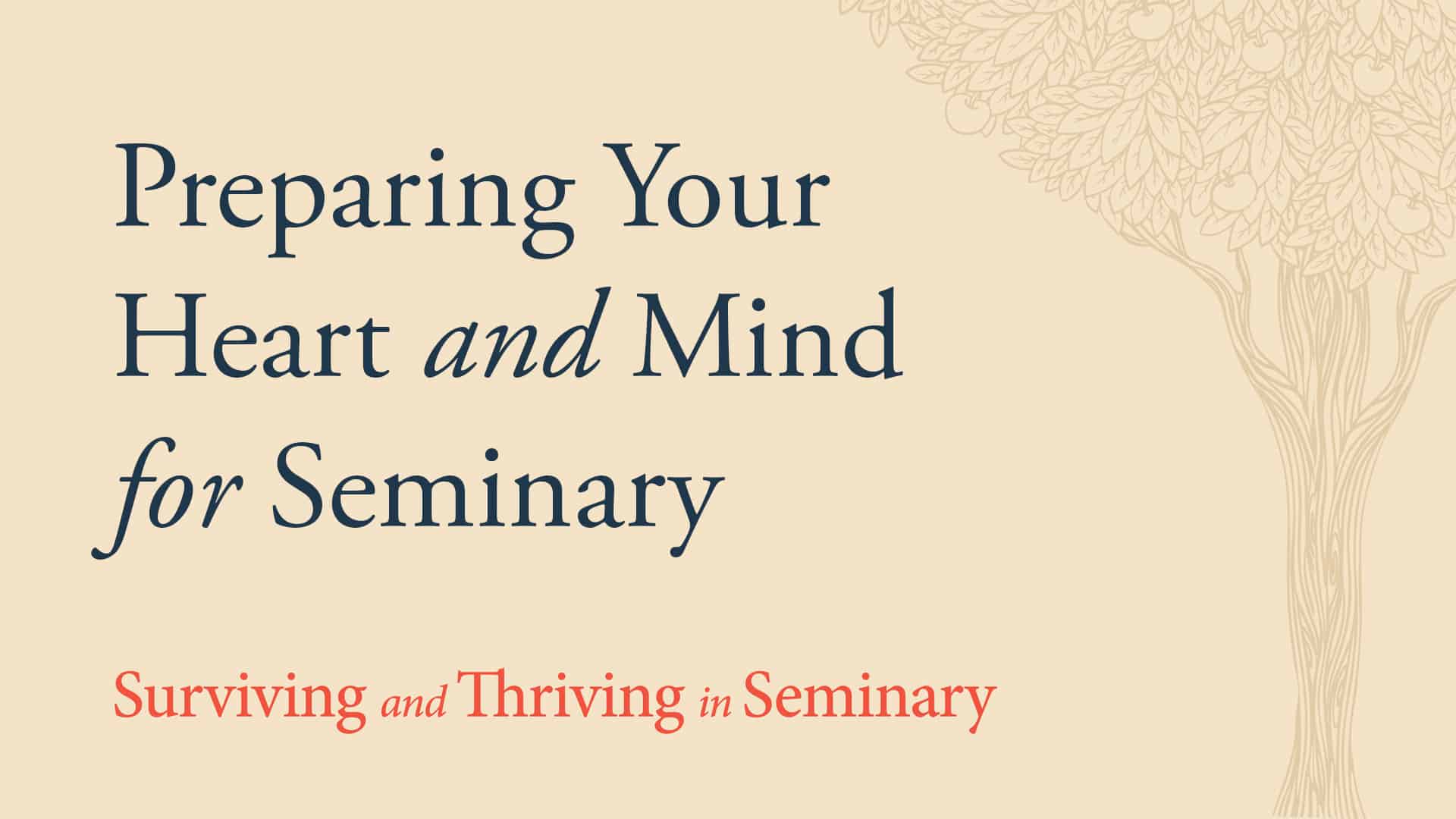
Danny Zacharias and Ben Forrest wrote Surviving and Thriving in Seminary to equip students with the skills to succeed?spiritually, relationally, and academically?while attending seminary. In this excerpt, they speak directly to new and prospective seminary students about the challenges they may face when they arrive on campus.
Like many seminary students, you may have grown up reading the Bible, attending Sunday school, going to Bible camp, etc. All of these have given you a hunger for God?s Word, as well as a desire to serve him and others. This has brought you to seminary, and that is a great thing!
But we have both good news and bad news for you. First the good news: You will learn and understand the Bible in an even deeper way because of the theological training you receive in seminary. But the bad news is that you might not be as prepared as you think you are. Sure, you may know the Bible well, but this does not necessarily mean you are prepared to read and study at an academic level. Even if you have studied the Bible your entire life, you may end up struggling along with everyone else with new terms and concepts that you?ve never heard before from your pastor or church.
Like every field of study, biblical and theological study involves the mastering of new terms and concepts. The difference is your mindset going in. Medical students, for example, go in prepared to learn previously unknown things. You, on the other hand, have likely discussed the Bible and theology with friends and family and listened to speakers talk about it for years. But now you are listening to professors discuss the same subjects in ways you?ve never heard before. It is jarring and often confusing. Students sometimes rebel, questioning the faith of their professors or wonder why they need to learn ?all this new extraneous stuff.? If you are tempted to resist new ideas, remind yourself that wisdom and knowledge come from being exposed to and thinking through new ideas?not by refusing to listen or enter into dialogue.
You will not only be faced with new terms and concepts, but these concepts may challenge you on a personal level. Most students in other fields of study take in what they learn from their professors and textbooks with almost total openness. They can do this because what they learn doesn?t (usually) challenge them to think differently on a topic that is near and dear to their heart. But in seminary, you are studying things you have previously internalized: the Christian faith, the stories of the Bible, your personal theology, and your ministry future. You meditate on these things; you celebrate them with your faith community, and many of you have already taught and preached on them. The experience of the graduate seminarian is different than those in other fields. Students in music or economics do not generally experience this same relationship with their subject matter prior to their graduate-level studies.
Seminary will ask you to take a step back and look critically at what you believe?not because your professors want to destroy your beliefs, but because they want you to think about whether they are the best way to understand the world, and whether they truly are in line with the Scriptures and not just a folk theology. They want you to expand your thoughts on certain issues. Be willing to entertain another perspective, even if you do not ultimately agree. This challenge is great for you?but can at times be a painful process.
Because you will be introduced to new concepts, challenging ideas, and a new way of reading the Scriptures, you need to prepare for discomfort. Sometimes your professor or fellow students will hold a different position than you. While your inclination may be to put up your guard and plug your ears, resist this urge. Discomfort will force you to rethink your position and articulate it better. Or you may change your mind altogether as you come to realize that you held an incorrect or simplistic belief. However, in the midst of discomfort you also need to firmly remind yourself of the fundamentals of orthodox Christian faith. You will very often be challenged on many fronts, but very rarely are students being challenged on the basics. Unless you?ve chosen to go to a seminary that is extremely different from your own faith tradition, most of your professors will hold to the same fundamental beliefs you do.
When faced with discomfort, it is helpful to remember that there was a process involved in you ending up at the seminary you are now in (or are about to be in). After making such a big decision, it is normal to feel doubt and apprehension. However, if you have thought carefully and sought wise counsel, trust your decision. But recognize that a correct decision does not mean a path that is free of challenges.







Honestly, as a new graduate student aspiring to work in ministry; this makes me a little fearful although the word tells us that the fear of God is the beginning of wisdom. The fear comes from not knowing if I will be good enough or afraid that the words in the books will conquer me and I will not understand. God help my unbelief1